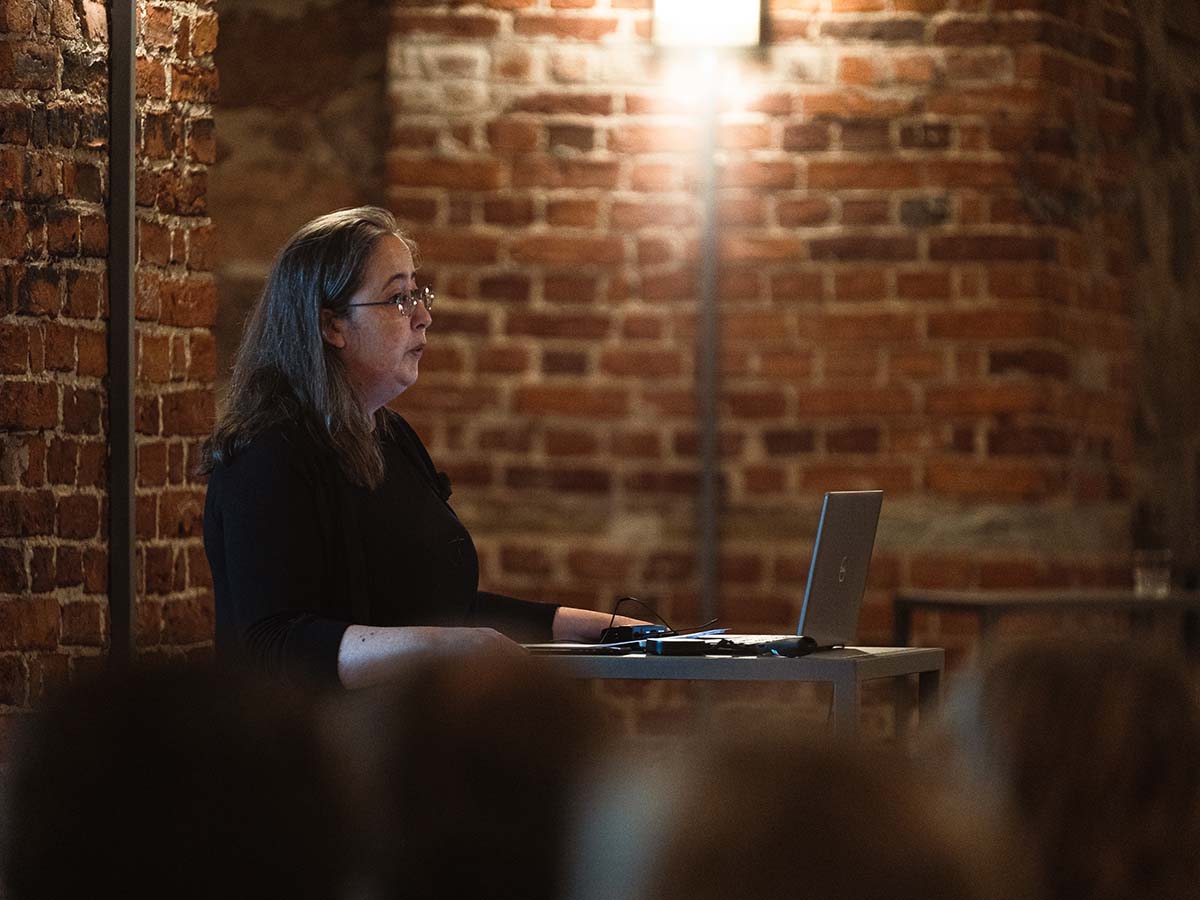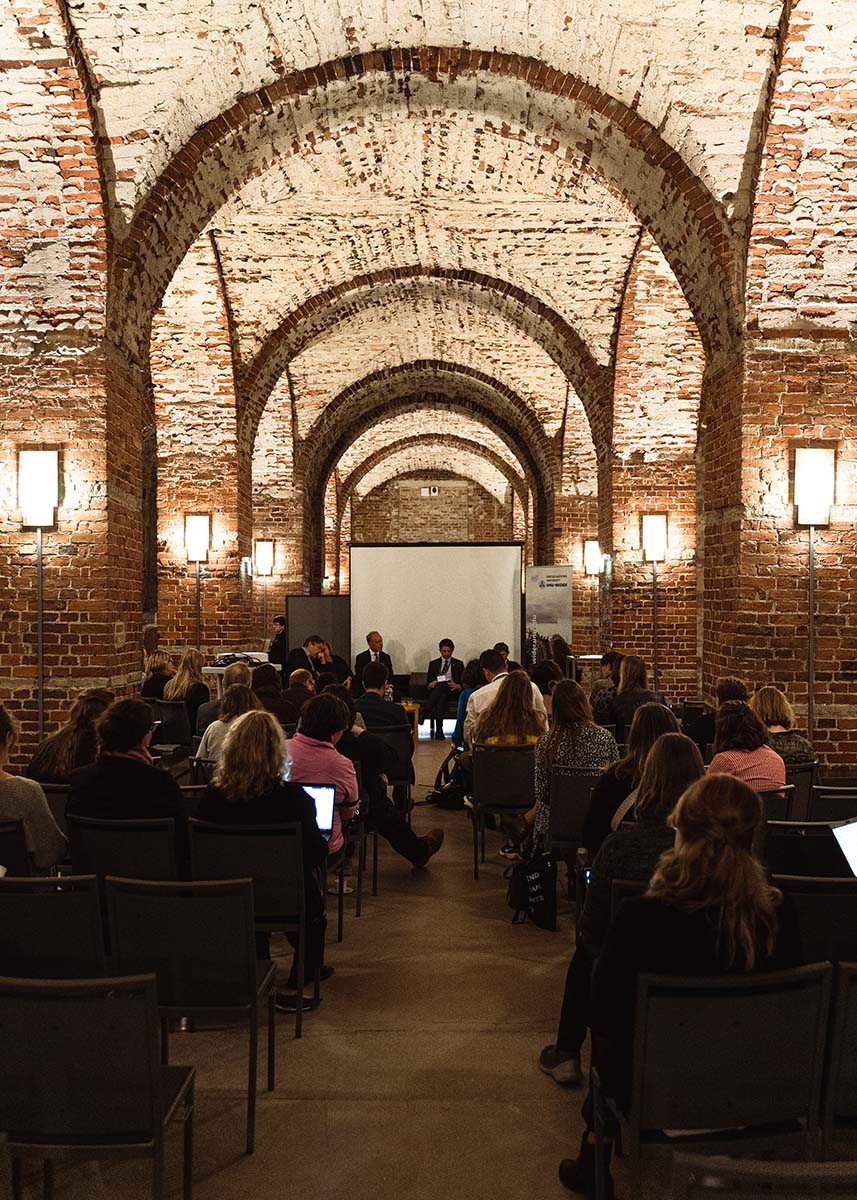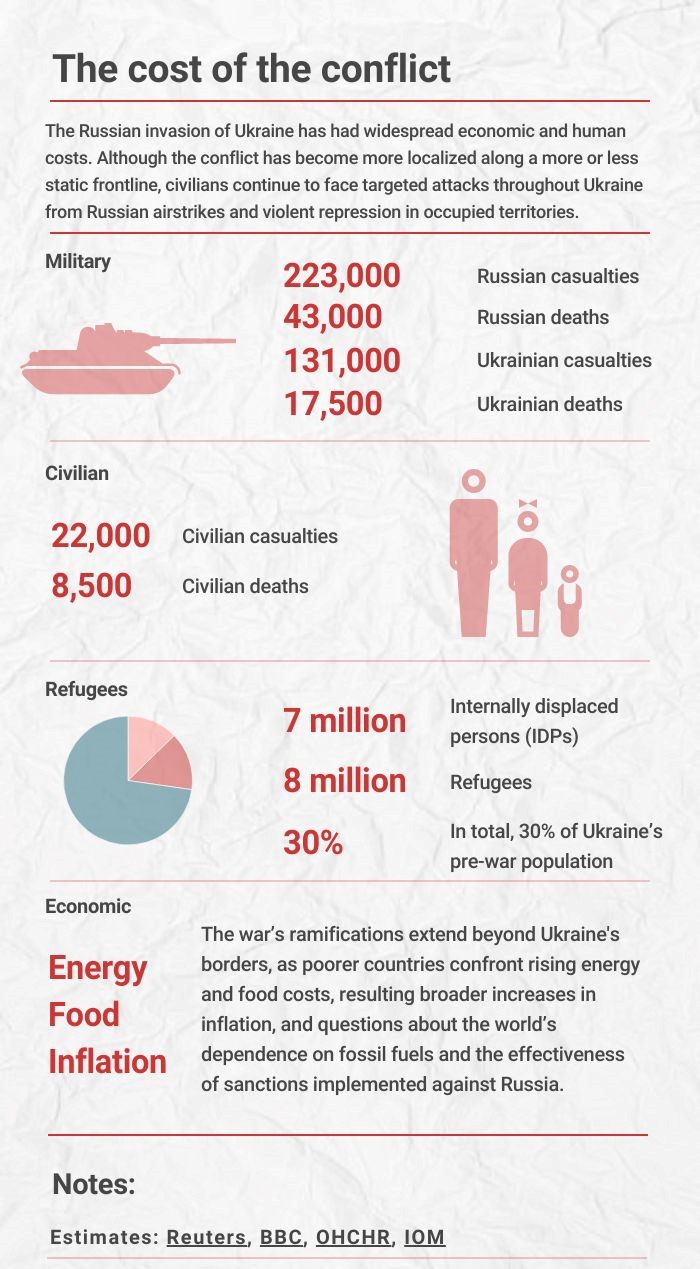Blog
After the war – thinking about reconstruction in Ukraine
Russia’s military involvement in Ukraine began in March 2014 with the annexation of Crimea, but it wasn’t until February 2022 that Russia shocked the world with a full-scale invasion of Ukraine, starting Europe’s biggest war since WWII. Defeating expectations that Russian military forces would quickly topple the Ukrainian government, the Russian army failed to take Kyiv.
An effective counteroffensive by Ukraine in autumn later in 2022 led to Ukraine regaining some of its Russian-occupied territories. Since then, Russia’s so-called ‘special military mission’ has become a protracted war of occupation, with widespread reports of civilian victimization and targeting, mass graves discovered in liberated territories, and high levels of repression and destruction in occupied areas. The war has caused untold suffering among the Ukrainian population and has led to profound questions about global geopolitical and economic relations.
Amid these complex debates, it is nonetheless important that Ukraine and its partners lay the groundwork for the social, political, and economic recovery of Ukraine.

Earlier this month, UNU-WIDER hosted a panel discussion on the stabilization, recovery, and reconstruction of Ukraine and its neighbours, as part of the Institutional legacies of violent conflict project. The panel included Deputy Ambassador of Ukraine to Finland Maksym Kravchuk, Professor Yuri Zhukov of Michigan University, Director of the Rule of Law Center Tuija Brax, Finnish Member of Parliament Kimmo Kiljunen, and Joonas Heiskanen from the Ministry for Foreign Affairs of Finland.
The event was organized in partnership with the Development Policy Committee of Finland, and in collaboration with the Households in Conflict Network (HiCN) and the Network of European Peace Scientists (NEPS). The panel debate argued that, in light of the severity of the war’s destructive impacts and the complexity of its adverse effects, attempts to achieve meaningful post-war reconstruction in Ukraine will need to include three crucial pillars: (i) the return and reintegration of Ukrainian refugees, (ii) the reconstruction and recovery of their livelihoods, and (iii) a wholesale rebuilding of the social contract.
Return and reintegration of refugees
The return and reintegration of Ukrainian refugees will play a pivotal role in the post-war reconstruction process. The research discussed in the panel called for the need to understand the factors driving decisions of refugees to return to Ukraine and explore how the international community can assist in facilitating their safe return and successful integration.
It is worth noting that remittances to families in Ukraine constituted 9% of GDP in 2021, underscoring the significance of refugee contributions to the country’s economy. Because of the tremendous impact that taking in 8 million refugees has had on neighbouring countries, addressing the return of refugees and internally displaced persons (IDPs) will not only shape the economic and demographic future of Ukraine, but also of the European countries hosting these refugees.
A large part of Ukrainian refugees and IDPs are women and children. Understanding the effects of war on children will be central to how Ukraine will rebuild its human capital. Research from other violent conflicts over the last 20 years has shown how exposure to violence during childhood and adolescence leads to long-term adverse effects on health, education, and employment outcomes that can span generations. Studies have shown that the long-term health costs associated with the exposure of children to violence during WWII are still visible today.
Tragically, it is likely we will see similar effects in Ukraine. The job of the Ukrainian government and the international community is to make those consequences less damaging by ensuring the safe return of families, supporting continued education of children, and prioritizing the socio-emotional development of those exposed to violence and displacement.
Livelihood reconstruction and recovery
The reconstruction and recovery of the livelihoods of Ukrainian refugees and of those that remained in war-affected areas will be another important pillar of post-war reconstruction. A focus on livelihood recovery will not only spur local economic activity but will also contribute to efforts to incentivize their return to and successful reintegration into Ukraine. The ongoing war has inflicted significant economic destruction and resulted in vast inequalities, with a staggering 30% of GDP lost in 2022 and an expected 45% reduction in 2023.
Recovering these economic losses will be an uphill battle that will require concerted international and national efforts, as well as tapping into bottom-up, local processes of economic recovery. In this, it will be important to not forget the distributional effects of both the war and of the recovery processes as the questions of who loses and who wins may affect future economic progress in Ukraine.

Rebuilding the social contract
The third pillar of post-war reconstruction concerns the social contract. Countries cannot recover in the aftermath of violent wars without the support of citizens. Accordingly, understanding what shapes attitudes, behaviours, and trust among Ukrainian citizens today and as the war progresses is critical, as it reveals how to overcome divisions and social polarization.
Of crucial importance will be a deeper understanding of how different individuals and social groups may be perceived as enemy collaborators, the complex dynamics of civilian collaboration, and how individuals perceive and evaluate those who were once considered foes. This understanding will allow communities to uncover strategies for accepting perceived enemies as members of the community (or not), consider the potential backlash against collaborators, and explore ways to overcome divisions and polarization in Ukraine.
Compromise is the foundation of democracy. Hence, we must bridge deep divisions after the war and promote the protection of human rights and due process within the framework of the rule of law. Gaining this understanding will contribute to the rebuilding of a social contract to restore unity, common purpose, and a sustainable path towards a more cohesive post-war Ukraine.

A new global order?
It is abundantly clear that supporting Ukraine through its ongoing crisis and in the years to come will require unwavering support from the international community. This is reflected in aid budgets announced this year. However, Ukraine’s recovery raises profound questions about global order, multilateralism, and the international aid architecture. Three key areas have emerged as central to understanding the global impact of the Ukraine war:
- International relations: By invading Ukraine, Russia—a permanent member of the United Nations Security Council (UNSC)—violated the UN Charter, causing a fundamental threat to global order. Civilian killings and the kidnapping of children, for instance, have broken the most basic international laws and conventions. How the world will deal with war criminals in the Ukraine war will have profound implications for global order—getting this wrong may well embolden armed actors elsewhere.
- Global economy: The rise in food and energy prices contributes to food insecurity in many parts of the world. National debt is increasing in many developing countries as inflation pressures keep mounting. These secondary effects of the Ukraine war may create the conditions to trigger economic losses and political instability elsewhere, which may be challenging to address when most of the world’s aid resources and political attention is on Ukraine.
- Political support: The Russian invasion caused a general increase in the salience of national identification elsewhere in Europe, alongside support for Ukrainian citizens and their government’s resolve regarding their sovereignty. The political ramifications of these changes are unknown, but refugee pressure and rising energy costs may eventually hinder support efforts to Ukraine among European citizens. At the very least, avoiding polarization and maintaining social unity will be crucial to the stability of Europe and to the future prospects of Ukraine’s membership to the European Union.
Reflecting on the questions and perspectives expressed during this panel, addressing the challenges that this war presents to global order is of great urgency. The research that we will conduct on the conflict in Ukraine in UNU-WIDER’s upcoming work programme will provide insights and support to post-war reconstruction efforts in Ukraine and other conflict-affected regions. With support from our partners, we aim to contribute to an enduring peace and even stronger Ukraine.
Patricia Justino Deputy Director at UNU-WIDER and Professorial Fellow at the Institute of Development Studies (IDS) in Brighton, UK (on leave).
The views expressed in this piece are those of the author(s), and do not necessarily reflect the views of the Institute or the United Nations University, nor the programme/project donors.
 Join the network
Join the network


